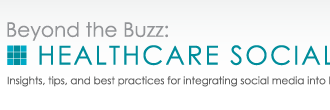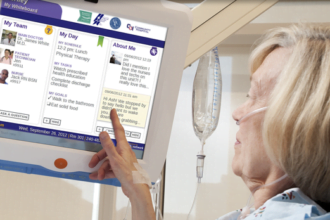Digital health is propelled by many different drivers: genomics research that allows for inexpensive, accurate sequencing (and biomarker discovery), smart phone and internet technology that provides consumers with access, and the increased power of consumers to demand remote healthcare services. Perhaps as a symptom of this increased demand (or at least awareness), we’ve observed digital health as a topic on two popular television shows.
Digital health is propelled by many different drivers: genomics research that allows for inexpensive, accurate sequencing (and biomarker discovery), smart phone and internet technology that provides consumers with access, and the increased power of consumers to demand remote healthcare services. Perhaps as a symptom of this increased demand (or at least awareness), we’ve observed digital health as a topic on two popular television shows.
Recently, Dr. Eric Topol, author of The Creative Destruction of Medicine and an advocate of these drivers who provides much commentary on digital health, appeared on the television show The Doctors. What was significant about this appearance?
- He reached a large, mostly consumer audience with the message of digital health and the innovations that are happening vis-à-vis empowerment provided to patients by mobile devices.
- He introduced biomarkers for certain diseases and the sensing technologies for them, and showed how powerful the combination can be in disease prediction and prevention.
- By illustrating the power of a smart-phone attached electrocardiogram, he underscored the notion that consumers/patients will be connected to their doctors remotely.
As consumers become more informed and empowered, they will continue to drive the disruption of healthcare delivery in the U.S. and elsewhere, helping to bend the cost curve downward, states Dr. Topol. This will happen as more healthcare is handled outside of hospitals, ensuring healthier consumers who are less likely to need care, and moving us into the realm of disease prevention.
As these changes are rapidly altering the healthcare landscape, it’s important to note how we got here. Former President Bill Clinton noted recently on The Daily Show that it was the collaboration of government, non-profits and the private sector that gave us both digital technology and the genomics advances behind digital health (he specified how San Diego, California, was transformed from a Naval center into a genomics/digital hub, thanks to companies like Qualcomm, the San Diego mayor’s office, the University of California, San Diego, and the non-profit J. Craig Venter Institute). Genomics is an important component of the digital revolution we’ve seen mostly in the academic and research worlds thus far, but which will be a big part of medicine and healthcare going forward.
What did you think of Dr. Topol’s appearance on The Doctors? How close are we to the “disease prevention” model of modern healthcare? Is the San Diego formula of private/public/non-profit partnership the only successful one? What do you make of a former U.S. president spending part of a TV interview speaking about digital health? We’d love to hear your thoughts.






